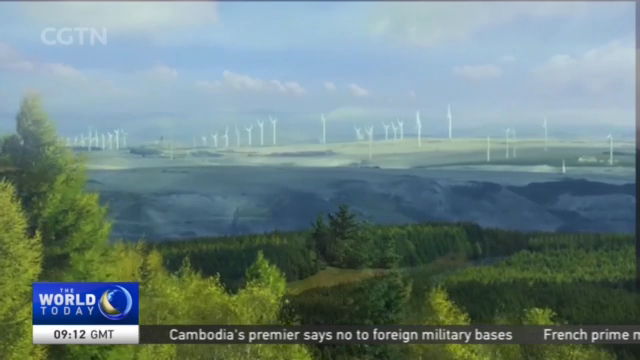
18:33, 07-Dec-2018
Fighting Climate Change: Can national carbon trading system help China cut emissions?
Updated
17:40, 10-Dec-2018
04:28

World leaders are continuing their talks in Poland, at the 24th UN Conference on Climate Change. They're supposed to be fleshing out the commitments they made in Paris in 2015, as scientists warn that time is running out to avoid global catastrophe. China says it's three years ahead of schedule in cutting emissions. And authorities also say China they plan to expand a national carbon trading system, which they claim will help further curb emissions. CGTN's Daniel Li reports.
Prof. Du Shaozhong is a long-time researcher of environmental sciences and low-carbon development. He says that building a national carbon trading market will be a major step forward in the fight against climate change. That's because it introduces market mechanisms to help reign in greenhouse gas emissions.
PROF. DU SHAOZHONG, PRESIDENT CHINA LOW-CARBON WISDOM ACADEMY "After years of preparation and activity, China's carbon trading market has already achieved some initial results. The government has set out the general framework and policies for carbon trading, and enterprises are actively participating under the guidance of national policies and market mechanisms."
In 2011, China began a pilot program for the carbon trading scheme. Initial priority was placed on seven provinces and municipalities. Lessons from these early trials have helped lay the foundations for building a standardized national market. By 2013, those seven pilot markets started trading online. And it wasn't long before the experiment began to bear fruit.
MEI DEWEN, PRESIDENT CHINA BEIJING ENVIRONMENT EXCHANGE "In the past five years, the carbon trade in pilot markets amounted to 270 mln tons of carbon dioxide, with sales of 6 bln yuan. Carbon trading markets have made important contributions to China's energy-saving and emission-reduction efforts. In Beijing alone, over 1,000 enterprises make transactions on this platform."
In 2017, China's carbon trading system began to go national. Formal transactions are expected to begin in 2020. Now is a critical transitional period, from pilot trading to a uniform market. But how exactly can carbon trading help China reach its emissions targets?
MEI DEWEN, PRESIDENT CHINA BEIJING ENVIRONMENT EXCHANGE "Carbon trading systems provide a kind of market mechanism. They can promote energy conservation and emission reductions at a low-cost and with high efficiency. By establishing property rights and setting pricing for environmental resources, China can make them scarce and turn these green resources, into green assets, in a cost-effective way."
Those "market mechanisms" are designed to have a direct effect on companies. But for the firms subject to the scheme, does carbon trading represent a burden or opportunity?
PROF. DU SHAOZHONG, PRESIDENT CHINA LOW-CARBON WISDOM ACADEMY "I think challenges and opportunities co-exist. Chinese enterprises have to develop in a low-carbon way. They need to update in all aspects, including in their mechanisms and technologies. But these very challenges may provide a boost to this process of industrial renewal, improve management and help the companies to reduce emissions."
Despite these opportunities, China's carbon trading system still has lots of room for improvement. From Professor Du's point of view, it's a process where all of society has a role to play.
PROF. DU SHAOZHONG, PRESIDENT CHINA LOW-CARBON WISDOM ACADEMY "First, all levels of society should learn more about the carbon trading market, its development and results, and what they can do to help it along. Secondly, we need to further promote the scheme to the public, to keep people abreast of where it's headed. The key is to make carbon reduction something that everyone can take part in. This is a long process."
Clear waters and green mountains won't turn into cash cows overnight. But the introduction of carbon trading mechanisms has helped start the process of transforming green resources into green assets, through the power of the market. China says it's committed to taking the path of green development. And with innovative schemes like carbon trading, it may just have something to share with other countries along the way. Daniel Li, CGTN.

SITEMAP
Copyright © 2018 CGTN. Beijing ICP prepared NO.16065310-3
Copyright © 2018 CGTN. Beijing ICP prepared NO.16065310-3